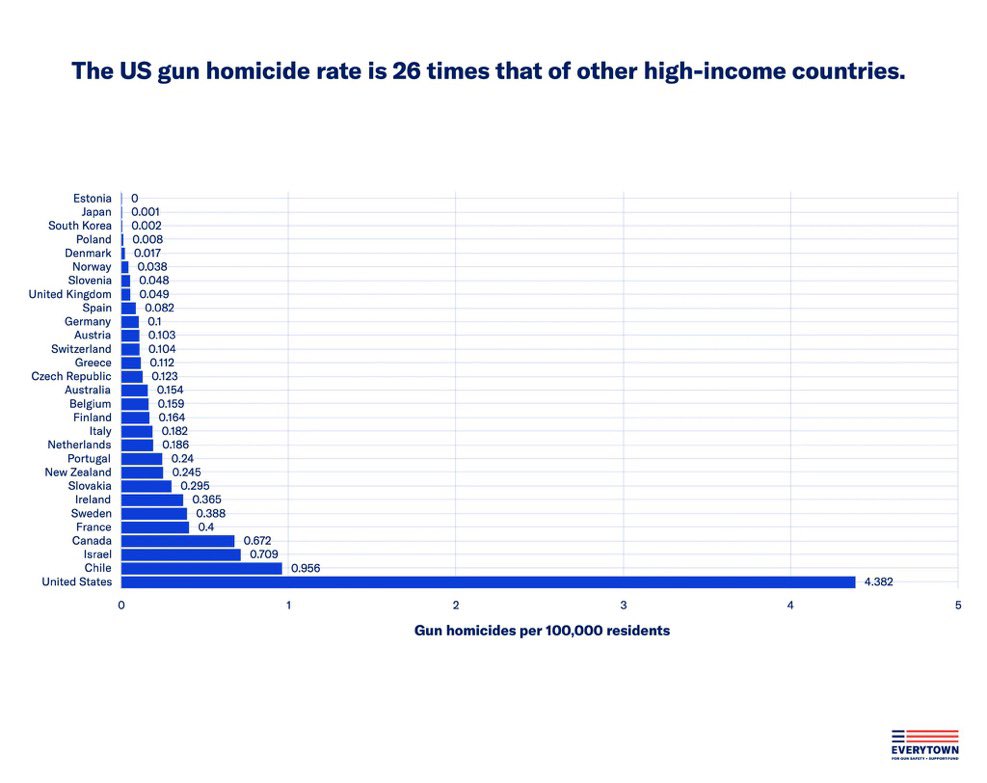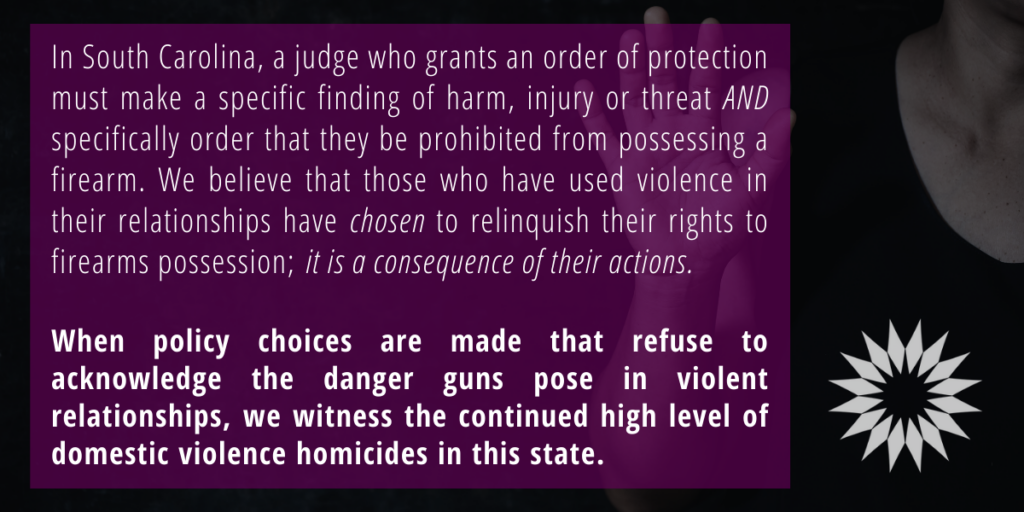Intimate partner violence and gun violence in the U.S. are inextricably linked.
IPV and gun violence impacts millions of women, families, and communities across the country. Escalating levels of gun violence, combined with recent court decisions, means advocacy efforts for increased gun safety measures are even more critical.
Abusers with firearms are five times more likely to kill their female victims and guns further exacerbate the power and control dynamic commonly used by abusers to inflict emotional abuse and exert coercive control over their victims.

A renewed sense of urgency:
In February, 2023, a three-judge panel of the 5th Circuit Court of Appeals found that the federal law prohibiting a person subject to qualifying domestic violence protection orders from possessing, receiving, shipping or transporting firearms to be unconstitutional — threatening many gun safety laws.
This decision in US v Rahimi follows the Supreme Court’s ruling in the Bruen case which will threaten many gun safety laws by requiring a plain reading of the Second Amendment instead of the two -part test established in the 2008 Heller decision which required examination of both historical precedent and compelling government interests (eg. safety).
This decision is currently in effect in Texas, Louisiana and Mississippi. The Department of Justice is currently considering next steps which could include an appeal to the full 5th Circuit or the US Supreme Court.
Why does this decision matter to victims/survivors?
- People who use violence against intimate partners and family members use firearms to exert power and control through using them to threaten victims.
- Firearms are the weapon of choice for intimate partner violence, with the risk of homicide increasing by up to five times if there is one or more firearms in the home.
- Community safety: bystanders, including law enforcement officers, killed during domestic violence homicides are usually killed by an offender with a gun.
- This decision places the rights of violent offenders to continue to access firearms over the rights of the victim and undermine the relief afforded by Orders of Protection which are only granted after due process.
- Common sense gun safety laws that restrict dangerous abusers from legally accessing firearms are critical to increasing safety.
Click here to view the U.S. v. Rahimi Summary and Impact Overview from the National Coalition Against Domestic Violence and Battered Women’s Justice Project.
Take Action: Use Your Voice and Stand With Survivors
EVERY month, an average of 70 women are shot and killed by an intimate partner. Nearly 1 million women alive today have reported being shot or shot at by intimate partners, and over 4.5 million women have reported being threatened with a gun by an intimate partner.
And beyond the daily toll of this problem, in more than half of mass shootings over the past decade, the perpetrator shot a current or former intimate partner or family member as part of the rampage. The ripple effects of firearms in the hands of an abuser extend far beyond the intimate relationship—affecting children who witness or live with it and the family members, coworkers, and law enforcement officers who respond to it.
Everyone knows someone who has been a victim of domestic and sexual violence. We ask that you speak up and stand with survivors — ensuring their voices are heard at the State House and on Capitol Hill — by encouraging lawmakers to enact “red flag” laws and take additional action to keep guns out of the hands of violent individuals and abusers.
Contact Your State Legislators Contact Your Members of CongressS.C. Legislative Priorities for 2023 on this Issue
With the start of the 2023 Legislative Sessions both South Carolina, SCCADVASA will continue our advocacy efforts and monitor the situation surrounding access to abortion care and reproductive rights for survivors of domestic and sexual violence. Below is a listing and links to multiple bills that we will be tracking and responding to during this session.
- S. 127 (Hembree) Firearms
- Amends the gun laws to acknowledge that some categories of people should not be able to lawfully purchase a firearm
- Included are those subject to court orders restraining the person from “harassing, stalking or threatening a household member…or the child of a household member” if they have been found to pose a “credible threat.”
- S. 143 (Shealy & Goldfinch) Dating Partners + Orders of Protection
- This bill adds dating partners to qualifying relationships for Orders of Protection and removes “male and female” from the definition of cohabitating partners to conform with the South Carolina Supreme Court’s ruling in Doe v. State (2017).
- By expanding OPs to include dating partners, it further strengthens protections for survivors. In South Carolina, it is illegal for someone to have or buy any firearm or ammunition if there is a valid order of protection issued against him/her from South Carolina (or from a court in another state, tribe, or territory) and at the time of the hearing, the judge:
- made specific findings that the abuser caused (or attempted to cause) physical harm, bodily injury, or assault to his/her household member; and
- specifically ordered that the person is prohibited from possessing a firearm or ammunition.
- As of 4/11/23, this bill continues to be stalled due to a Senator’s concerns about the implementation of the firearms prohibition on persons subject to an order of protection.

Important Resources and Information on this Issue
- It’s Not ‘Deaths of Despair.’ It’s Deaths of Children. – The New York Times
- Gun violence has affected most families in the US, new survey finds – CNN Health
- Guns & Violence Against Women: Research & Policy Information from Everytown
- Study: U.S. gun death rates hit highest levels in decades – A.P. News
- Domestic Violence, Firearms, and Mass Shootings – The Journal of the American Academy of Psychiatry and the Law
- 2021 Gun Death & Violence Statistics by State – SafeHome.org
- Latest Supreme Court-related ruling overturning gun regulations worries domestic violence survivor advocates – CNN Politics
- The Founders didn’t disarm domestic abusers: Does that mean we can’t? – The Hill
- SC murders rose, other crimes fell: 2021 was an unusual year, SLED stats show – The State Newspaper
- The Power and Control Wheel – The National Domestic Violence Hotline


